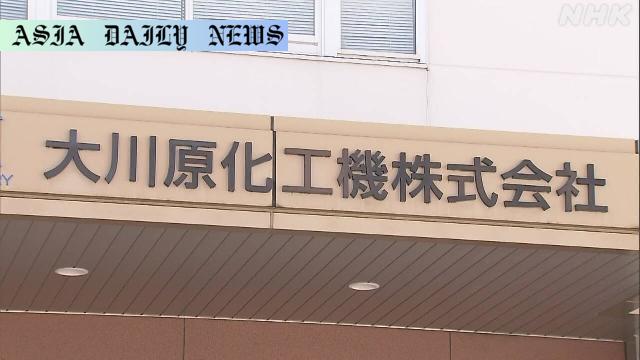Wrongful arrest, investigations ruled unlawful by Tokyo courts, awarding 166 million yen in damages to chemical machinery executives.

High Court’s Landmark Decision on Wrongful Arrest of Executives
Amid growing concerns over legal and investigative ethics, significant accountability was demonstrated in a recent Tokyo High Court ruling. The court finalized a pivotal decision, awarding 166 million yen (approximately $1.14 million) in damages to Ohkawara Kakohki, a Yokohama-based chemical machinery manufacturer, and the families of three of its executives. This judgment follows the wrongful arrest of the executives for allegations tied to illegal machinery exports, which were ultimately disproven.
Context of the Case
In 2020, Tokyo police had detained three executives from Ohkawara Kakohki under suspicions of exporting chemical machinery that could potentially be weaponized for military use. These arrests were part of broader national security concerns. However, investigations revealed procedural flaws and a lack of substantiated evidence. After prosecution initially proceeded with indictments, all charges were eventually dropped. This rare reversal underscored a grave miscarriage of justice, culminating in the court’s decision to deem the investigations as fundamentally unlawful.
Reactions from Authorities and the Public
Both the Tokyo Metropolitan Police Department and the Tokyo District Public Prosecutors Office publicly apologized for their mistakes. The police department has since assembled a special committee, led by the deputy chief, to review investigative protocols and prevent future occurrences of similar errors. Meanwhile, the Supreme Public Prosecutors Office is set to assess the prosecutorial procedures which led to the wrongful indictments, reinforcing a transparent review process.
Beyond institutional responses, the ruling also ignites discussions in broader public and legal circles about systemic changes required within Japan’s legal and law enforcement systems. Advocates stress this as an opportunity to reform investigative and prosecutorial checks to safeguard civil liberties against institutional overreach.
Implications for Legal Practices in Japan
The court’s emphasis on the unlawfulness of the investigation sets a strong precedent for evidentiary reliance and ethical due process. Moreover, the financial penalties imposed serve both as restitution to those wronged and as a deterrent to similar institutional negligence in the future. Legal experts believe this verdict sheds light on systemic gaps that allow such missteps.
This case raises critical awareness about the potential misuse of authority and highlights how accountability mechanisms can counteract abuses. It stands as a reminder that no institution is above the law and that the pursuit of justice requires expedited checks and balances at every stage of investigation and prosecution.
Future Steps and Systemic Changes
The Tokyo police’s creation of an investigative reform team signals some groundwork towards addressing institutional issues. However, critics argue that such internal reviews may not be sufficient unless accompanied by broader systemic changes. Independent oversight committees and academic discussions about legal reforms have been proposed to mitigate the likelihood of future wrongful arrests.
For citizens, this case remains a symbol of hope that justice, although delayed, is not denied. The outcomes may provide additional leverage to advocates calling for improved transparency and accountability at all levels of law enforcement and judicial administration.
Commentary
Accountability in Law Enforcement: A Step Forward?
A Necessary Acknowledgment
The Tokyo High Court’s recent ruling on wrongful arrest serves as a pivotal moment in Japan’s legal history. It not only underscores the importance of procedural correctness in law enforcement but also highlights how systemic errors can cause untold damage to individuals. The awarding of $1.14 million in damages isn’t just about monetary compensation; it reflects an acknowledgment of the emotional, reputational, and professional harm caused to the executives and their families.
Learning from the Mistakes
The response from Tokyo police and public prosecutors demonstrates a willingness to introspect and ensure accountability. While their public apologies are appreciated, actions must follow words. Establishing committees to review procedural shortcomings is a step in the right direction, but this should translate into meaningful reforms. A systemic overhaul, possibly involving independent oversight, may be necessary to restore public confidence in Japan’s legal and investigative institutions.
Setting a Global Example
Globally, this case can serve as an important example for other nations grappling with issues of wrongful arrests and investigatory misconduct. It emphasizes the effectiveness of a robust judicial system where errors in policing are scrutinized and justice is served without bias. Japan’s ability to examine its institutions critically and correct its course assures citizens at home and observers abroad of its commitment to justice.
In conclusion, the Tokyo High Court’s decision is a reminder of the power of accountability. Although the damage done to the wrongfully accused executives cannot be entirely undone, this judgment offers a measure of justice and paves the way for essential reforms in the future. Japan’s handling of this case is a call to action for governments and legal systems worldwide to prioritize human dignity and due process above all else.


